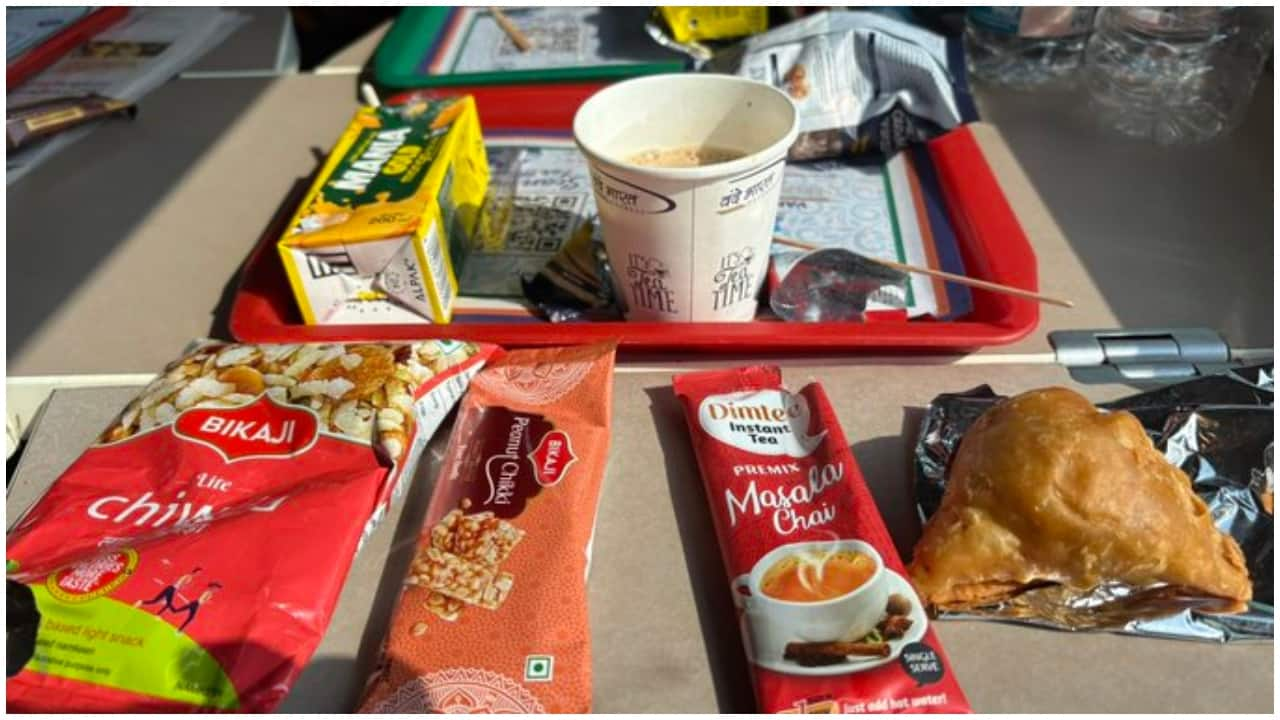A fresh cultural controversy has emerged in India amid ongoing debates over language imposition, this time centring on the perceived marginalisation of regional cuisine. Malayalam writer NS Madhavan on Wednesday took to social media platform X (formerly Twitter) to highlight the absence of representative South Indian food on Vande Bharat trains operating in southern states. “They speak about language imposition.
What about food imposition?” Madhavan wrote in a post that included an image of snacks served onboard the Bengaluru-Coimbatore Vande Bharat Express. “Typical snacks served in South Indian Vande Bharat trains. This one from Bengaluru-Coimbatore VB,” he added, suggesting that the menu failed to reflect local culinary traditions.

Madhavan’s remarks quickly gained traction online, prompting a broader conversation around regional representation in national services, particularly in the context of Indian Railways’ catering policies. Several users echoed his concerns, pointing out that the issue of centralised decision-making was not limited to language alone, but also extended to food offerings. One user commented, “Yeah, this is actually intriguing, never a central government or railways gave attention.
Anyway, these caterers don't know how to cook food—either North Indian or South Indian. If you haven’t tasted the worst food, then go and experience it in railways.” Another user argued, “We get idli from Kashmir to Kanyakumari, no one cries imposition.
” A third added, “99% of restaurants in the North serve Idli-Dosa as staple items. Food imposition saar.” The debate over food imposition comes in the wake of a separate language-related controversy earlier in the week.
On X, several users noted the apparent removal of Hindi from digital display boards at Bengaluru’s Kempegowda International Airport (KIA) , interpreting the change as a rejection of what they described as Hindi imposition in Karnataka. “Hindi is removed from digital display boards of Kempegowda International Airport in Bengaluru. Kannada & English.
Kannadigas are resisting Hindi imposition,” one user wrote while sharing a video showing the digital flight information displays using only Kannada and English. Another post termed the development as a “really good” step, aligning with growing calls for a two-language policy in the state — favouring the use of Kannada and English over Hindi in public spaces and services. These recent incidents have reignited longstanding concerns in southern India, particularly in Tamil Nadu and Karnataka, over attempts — perceived or real — to impose Hindi and North Indian cultural norms at the expense of regional languages and traditions.
.
Politics

Malayalam writer flags lack of South Indian cuisine on Vande Bharat, divides internet: 'Food imposition'
















